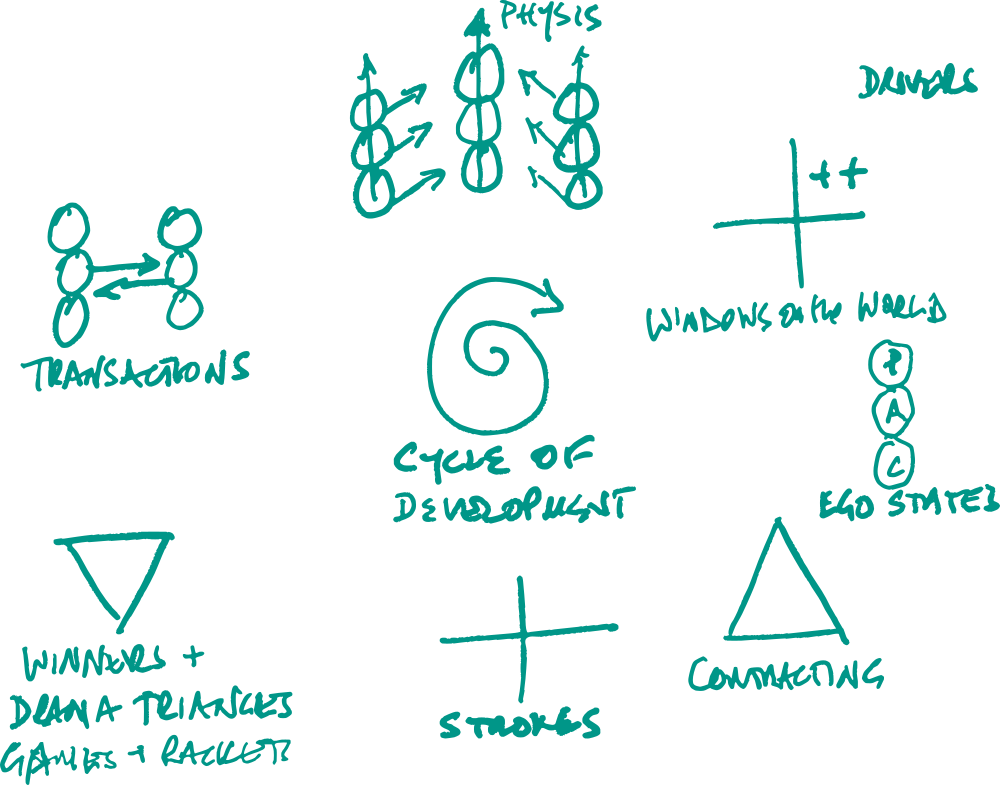Autonomy and Physis
Autonomy
Berne regarded the work of the Transactional Analyst to ‘fix’ the patient through freeing them of script limiting beliefs and decisions. Script cure by implication meant the individual would be more autonomous – the ultimate goal in TA.
Berne spent more time describing how it is that people are crippled by script and much of his writing details the different ways in which individuals demonstrate their script working itself out in day to day interactions. He didn’t write so much on the features of healthy living and not a great deal about autonomy. However, he identified three features of autonomy:
- Great awareness of both self and others, that in turn leads to...
- Greater spontaneity in considering and deciding on best options that results in...
- A greater capacity for intimacy or closeness – an expression of our true, core self
Homonomy
In the last few of years the TA community has recognised that the goal of personal autonomy has its limitations, especially in an age of climate collapse and social inequality. The inadvertent emphasis on individualism is highly problematic and discounts other ways of understanding the human condition. Two developments are of particular interest in this respect. First, the growing use of the term 'homonomy' as an alternative to autonomy. This refers to the tendency of human beings to seek out connectedness with one another, instead of a predominantly Western notion of individualism. Homonomy acknowledges that a feature of individual growth is interdependent with that of others, best expressed in the phrase; 'I am in you in a different form, and you are me in a different form'.
A second development is ecological transactional analysis, which involves the practice of TA with the Earth in mind. For further information about this approach, see: ecota.dev.
Physis
Physis is how Berne described the life force, the desire to exist, grow and reach potential. In TA it is represented by a line shooting upwards through the symbolic three stacked circles. As TA practitioners our aim is to promote autonomy for others working alongside them in realising physis. To do this we draw on the wide range of TA concepts to frame our work.

Above all, the key thing to remember in using TA is not which idea comes first, but the three underpinning beliefs:
- I’m OK - You’re Ok
- Everyone Can Think
- Anyone can Change
